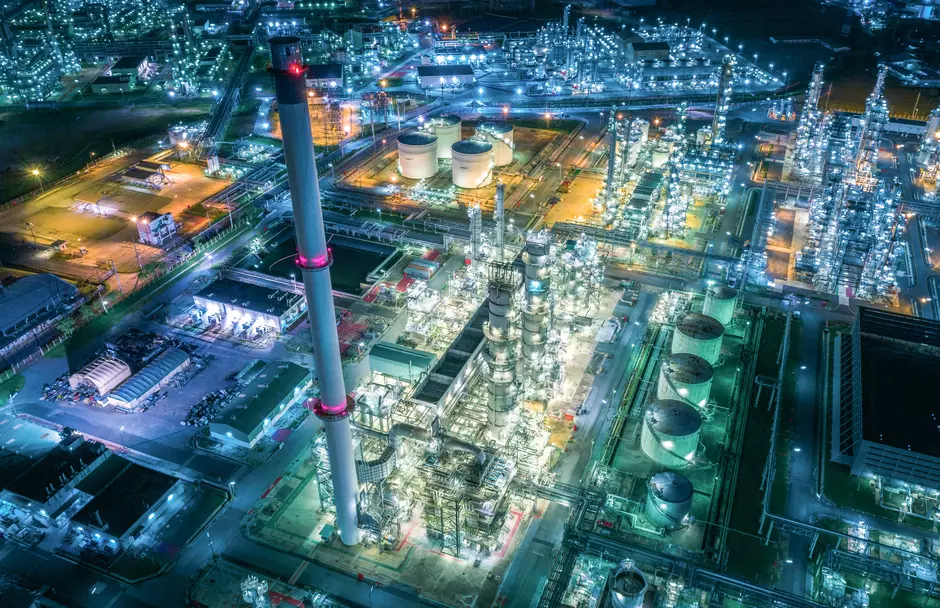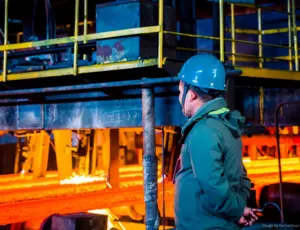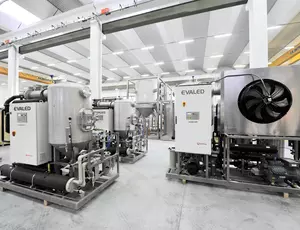Mechanical workshops generate effluents containing lubricating oils with significant levels of COD (Chemical Oxygen Demand), hydrocarbons, metals and suspended solids.
These workshop wastewaters may come from a variety of operations such as cutting and drilling, molding, cleaning of mechanical parts, paint shops, maintenance, drainages from settling and sludge tanks, and from a variety of industries such as automotive, aerospace, furniture, appliances, and many others.
These effluents are thus very variable in terms of quality and composition and must be treated properly before disposal since they are a highly pollutant waste, both for the environment and the workplace.
Oil emulsions in mechanical and workshop wastewater: how we treat oily wastewater
A proper management of the automotive industry wastewater or of the aerospace industry wastewater can be problematic because of their polluting potential and because of the high quantity of water they contain. In exhausted metalworking wastewater, that can be called “oily emulsions” or “oil-water emulsions” for disposal purposes, the oil fraction improves their lubricating capacity, while water increases their cooling capacity.
In addition to the oily component, additives (i.e. additives for high pressure operations, biocides, corrosion inhibitors, etc.) can also be incorporated, thus the wastewater generated by the mechanical industry, and the metalworking sector in general, has a high conductivity and contains:
- suspended solids
- heavy metals
- phosphates
- surfactants
Even with the best management procedures, the mechanical industry water-based fluids do not last indefinitely and require treatment and disposal: EVALED has developed wastewater treatment technologies that can dispose of these specific effluents.
Mechanical wastewater treatment by evaporation
EVALED wastewater evaporation systems are very easy to operate and can be easily included in the plant after an oil-skimmer. Their energy consumption is negligible (especially for the RVF series), and this makes them a very competitive treatment alternative for workshop wastewater. Evaporation allows to achieve different goals:
- high quality of distillate
- water recovery and water reuse
- ZLD (Zero Liquid Discharge) when possible
- significant reduction of volume of the waste to be disposed of.
On the basis of the average needs in metalworking and mechanical wastewaters treatment, most of the EVALED references worldwide are installations of:
Application & products
MECHANICAL TREATMENTS
| Application | Evaled | ADDED VALUE |
|---|---|---|
| Exhausted oil emulsions | RV, AC, PC | Oil recovery, water reuse, disposal cost reduction |
| Moulds release liquids baths | RV , AC, PC | Oil recovery, water reuse, disposal cost reduction |
| Quenching baths | RV, PC | Water reuse, disposal cost reduction |
| Tumbling baths | RV , PC | Water reuse, sludge reduction |
| Parts rinsing waters | RV, AC, PC | Water reuse, disposal cost reduction |
| Precious metals waste water streams (laundry & washings) | PC | Metal recovery, disposal cost reduction |
| IE regeneration | RV , AC, PC | ZLD, water recovery |
| RO concentrates | RV, AC, PC | ZLD, water recovery, sludge reduction |

Capabilities
Mechanical parts workshops (Precious metals, Precision, Instrumentation)
Automotive (Car, Trains, Motorbikes) engine and main parts production – Tier ½
Aviation engine and main parts production
Automotive sub-suppliers – Tier 3/4
Aviation sub-suppliersFurniture mechanical parts production
Appliance mechanical parts production
Heating & Plumbing parts production
Wire production (Copper/Steel/Alu)
Defence mechanical parts production
Engineering companies






